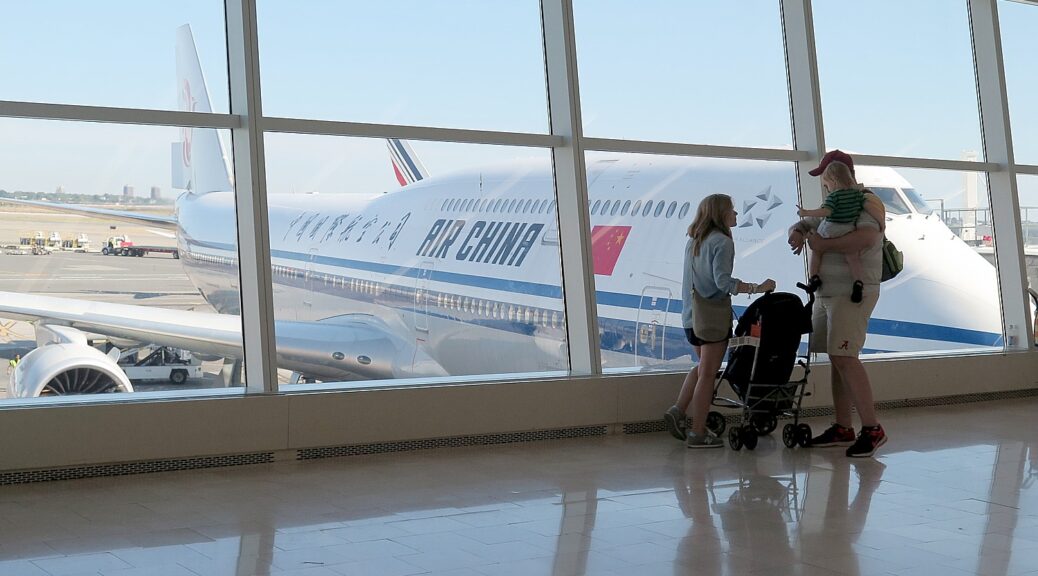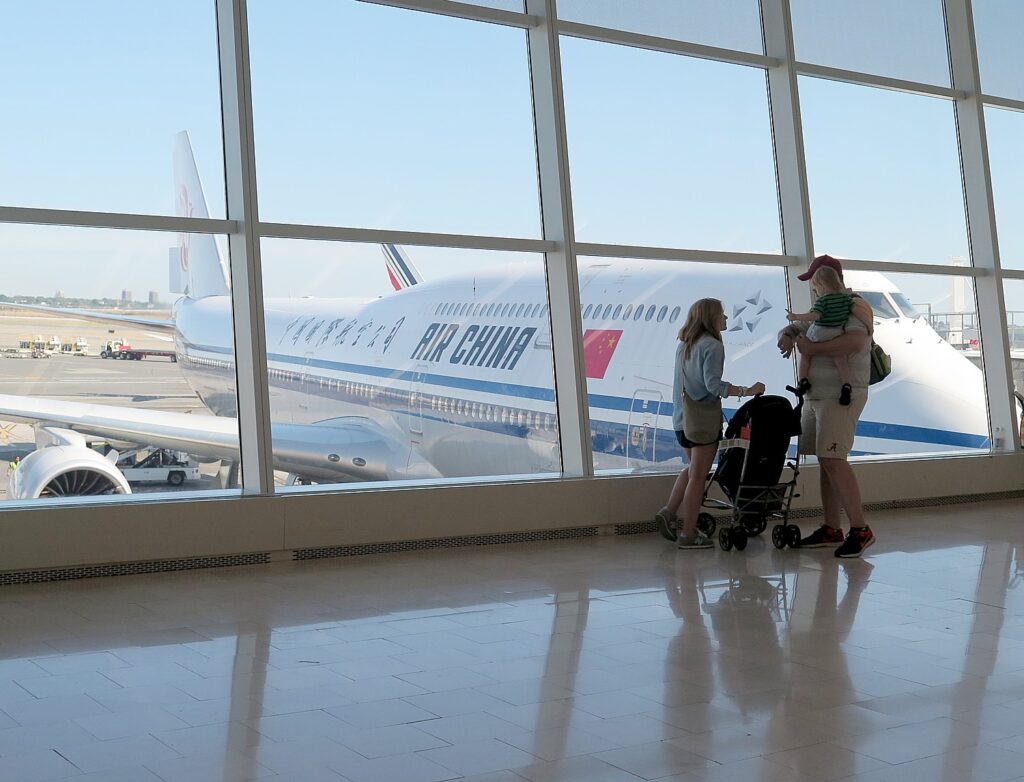The Biden-Harris Administration announced new actions to take on corporate tricks and scams like excessive paperwork, long wait times, and more that pad the profits of big business at the expense of everyday Americans’ time and money. This fact sheet was provided by the White House.

President Biden and Vice President Harris are launching “Time Is Money,” a new government-wide effort to crack down on all the ways that corporations—through excessive paperwork, hold times, and general aggravation—add unnecessary headaches and hassles to people’s days and degrade their quality of life.
Americans are tired of being played for suckers, and President Biden and Vice President Harris are committed to addressing the pain points they face in their everyday lives. The Administration is already cracking down on junk fees—those hidden costs and surcharges in everything from travel to banking services—that hit people in their pocketbooks. Now the Biden-Harris Administration is taking on the corporate practice of giving people the run around, wasting their precious time and money.
Americans know these practices well: it’s being forced to wait on hold just to get the refund we’re owed; the hoops and hurdles to cancel a gym membership or subscription; the unnecessary complications of dealing with health insurance companies; the requirements to do in-person or by mail what could easily be done with a couple of clicks online; and confusing, lengthy, or manipulative forms that take unnecessary time and effort.
These hassles don’t just happen by accident. Companies often deliberately design their business processes to be time-consuming or otherwise burdensome for consumers, in order to deter them from getting a rebate or refund they are due or canceling a subscription or membership they no longer want—all with the goal of maximizing profits.
In addition to robbing hardworking families of their valuable time and adding frustration to our daily lives, these hassles cost us money. When, after endless hours on hold or piles of incomprehensible paperwork, we give up pursuing a service, rebate or refund we’re due, we take a hit to our pocketbooks, and companies profit
Today and in the coming months, the Biden-Harris Administration will take wide-ranging action to crack down on these unfair practices and save Americans time and money. Key actions include:
- Making it easier to cancel subscriptions and memberships. Businesses often trick consumers into paying for subscriptions—on everything from gym memberships to newspapers to cosmetics—that they no longer want or didn’t sign up for in the first place. Consumers shouldn’t have to navigate a maze just to cancel unwanted subscriptions and recurring payments. The Federal Trade Commission (FTC) has proposed a rule that, if finalized as proposed, would require companies to make it as easy to cancel a subscription or service as it was to sign up for one. The agency is currently reviewing public comments about its proposal. And today, the Federal Communications Commission (FCC) is initiating an inquiry into whether to extend similar requirements to companies in the communications industry.
- Ending airline runarounds by requiring automatic cash refunds. The Department of Transportation’s (DOT) new automatic refunds rule requires airlines to pay you back the airfare when your flight is canceled or significantly changed for any reason, and you are not offered, or choose not to accept, alternatives such as rebooking. This rule prevents airlines from switching up their policies to make it hard to get your money back when they don’t deliver and requires them to tell you when you’re owed a refund. DOT’s rule also puts an end to airline runarounds by requiring refunds to be automatic, prompt, in the original form of payment, and for the full amount paid. No more jumping through hoops or getting stuck with expiring flight credits.
- Allowing you to submit health claims online. Health coverage can be full of headaches and hassles, as many plans and insurance companies make it unnecessarily difficult to access information or send in claims. For example, many of the largest plans still require some customers to print out and either scan or physically mail health claims forms, and people seeking help can encounter inaccurate or confusing websites, extended wait times, or narrow call center hours that force them to step away from work to talk to an agent. Today, Department of Health and Human Services (HHS) Secretary Becerra and Department of Labor (DOL) Acting Secretary Su are calling on [insert link to letter] health insurance companies and group health plans to take concrete actions to save people time and money when interacting with their health coverage, and in the coming months will identify additional opportunities to improve consumers’ interactions with the health care system. In addition, the Office of Personnel Management plans to require Federal Employees Health Benefits and Postal Service Health Benefits plans, covering eight million Americans, to make it easier to submit out of network claims online, provide clear information about what health plan providers are in-network, and make it easier to find information on how to appeal claim denials.
- Cracking down on customer service “doom loops.” Too often customers seeking assistance from a real person are instead sent through a maze of menu options and automated recordings, wasting their time and failing to get the support they need. In a recent survey, respondents said that being forced to listen to long messages before being permitted to speak to a live representative was their top customer service complaint. To tackle these “doom loops,” the Consumer Financial Protection Bureau (CFPB) will initiate a rulemaking process that would require companies under its jurisdiction to let customers talk to a human by pressing a single button. The FCC will launch an inquiry into considering similar requirements for phone, broadband, and cable companies. HHS and DOL will similarly call on health plan providers to make it easier to talk to a customer service agent.
- Ensuring accountability for companies that provide bad service. People shopping for products or services should be able to rely on customer reviews to assess which companies will provide streamlined service and not waste their time. The FTC has proposed a rule that, if finalized as proposed, would stop marketers from using illicit review and endorsement practices such as using fake reviews, suppressing honest negative reviews, and paying for positive reviews, which deceive consumers looking for real feedback on a product or service and undercut honest businesses.
- Taking on the limitations and shortcomings of customer service chatbots. While chatbots can be useful for answering basic questions, they often have limited ability to solve more complex problems and disputes. Instead, chatbots frequently provide inaccurate information and give the run-around to customers seeking a real person. The CFPB is planning to issue rules or guidance to crack down on ineffective and time-wasting chatbots used by banks and other financial institutions in lieu of customer service. The CFPB will identify when the use of automated chatbots or automated artificial intelligence voice recordings is unlawful, including in situations in which customers believe they are speaking with a human being.
- Helping streamline parent communication with schools. Between communicating with teachers, viewing school policies, completing forms and permission slips, and more, school processes, platforms, and paperwork can sometimes be a hassle for families that already have a lot on their plates. The Department of Education will issue new guidance to schools on how they can help make these processes less time-consuming for parents to handle, and to build effective family engagement through two-way communications. This will include new resources for schools to address time-wasting technology and offer more streamlined processes for engaging and communicating with parents.
What else should we take on? The White House is calling for Americans to share their ideas for how federal action can give them their time back. Interested parties can submit their ideas and comments at this portal, and may consider the following principles:
- Companies should make it as easy to do things that you want to do as it is to do things they want to do.
- It should be as easy cancel a subscription or membership as it is to enroll.
- It should be as easy to obtain rebates and refunds as it was to purchase, with no needlessly cumbersome paperwork.
- Refunds and rebates should be paid as quickly as companies take funds from your credit card or bank account.
- Americans should be able receive customer service on their terms and their own time without significant hassle or hardship.
- If you want to talk to a human, you should be able to talk to a human at convenient times and without interminable waits.
- If you prefer to interact electronically – such as by text, email, or online portal – there should be simple and easily identified ways to do so securely.
- Technology – such as chatbots – should be used to enhance customer service with speedy response times, not used to shirk on basic responsibilities, such as receiving a refund.
- Americans should not be subject to confusing, manipulative, or deceptive practices online.
- If you want to understand what you must do to obtain a good or service, the requirements should be clear and transparent.
- You should not be subject to hidden fees or to requirements that are obscured through confusing language and small print.
Time Is Money builds on landmark efforts by the Biden-Harris Administration to improve customer service for people accessing government programs and services. In December 2021 the President signed an Executive Order, Transforming Federal Customer Experience and Service Delivery to Rebuild Trust in Government, directing federal agencies to streamline services and simplify customer experiences.
Already, agencies are making progress: the State Department launched a public beta to renew your passport online; all 50 states have been invited to offer the Internal Revenue Service’s Direct File tool, an easy, secure, and—most importantly—free way for Americans to file their federal taxes; HHS has taken steps to allow more than 5 million Americans to automatically renew their health coverage without filling out paperwork, saving over 2 million hours in estimated processing time; and the Department of Homeland Security (DHS) announced that it has reduced the amount of time the public spends accessing DHS services per year by 21 million hours in fiscal year 2023, and is targeting reduction of 10 million more hours per year in fiscal year 2024. For more examples of progress and to learn more information about how agencies across the federal government are improving customer experience and reducing burden, visit performance.gov/cx and the Burden Reduction Initiative website












